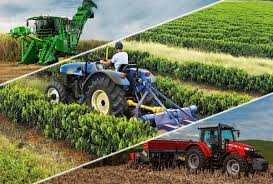Nigeria, with its vast arable land and favorable climate, has the potential to become a leading agricultural producer in Africa. However, the country’s agricultural sector is still largely dominated by traditional farming practices, which are labor-intensive and inefficient. Agricultural mechanization is critical to improving agricultural productivity, reducing labor costs, and enhancing food security. This article examines the challenges and opportunities of agricultural mechanization in Nigeria.
Challenges of Agricultural Mechanization in Nigeria
Despite its potential, agricultural mechanization in Nigeria faces several challenges, including:
1. Limited Access to Funding
Agricultural mechanization requires significant investment in machinery, equipment, and training. However, many Nigerian farmers lack access to funding, which hinders their ability to adopt mechanized farming practices.
2. Poor Infrastructure
Nigeria’s rural infrastructure, including roads, storage facilities, and irrigation systems, is inadequate, making it difficult to transport machinery, equipment, and produce.
3. Limited Technical Expertise
Many Nigerian farmers lack the technical expertise to operate and maintain modern agricultural machinery, which can lead to equipment breakdowns and reduced productivity.
4. High Cost of Machinery and Equipment
The high cost of agricultural machinery and equipment is a significant barrier to adoption, particularly for small-scale farmers.
5. Government Policies and Regulations
Nigeria’s agricultural policies and regulations often favor large-scale farmers, making it difficult for small-scale farmers to access credit, markets, and other resources.
Opportunities for Agricultural Mechanization in Nigeria
Despite the challenges, there are several opportunities for agricultural mechanization in Nigeria, including:
1. Government Initiatives
The Nigerian government has launched several initiatives to promote agricultural mechanization, including the Agricultural Mechanization Scheme, which provides subsidized machinery and equipment to farmers.
2. Private Sector Investment
Several private sector companies are investing in agricultural mechanization in Nigeria, providing machinery, equipment, and training to farmers.
3. International Cooperation
Nigeria is receiving support from international organizations, such as the Food and Agriculture Organization (FAO) and the African Development Bank (AfDB), to promote agricultural mechanization.
4. Technological Innovations
Advances in technology, such as precision agriculture and drone farming, are providing new opportunities for agricultural mechanization in Nigeria.
5. Growing Demand for Food
Nigeria’s growing population and increasing demand for food provide a significant market opportunity for farmers who adopt mechanized farming practices.
Way Forward
To overcome the challenges and seize the opportunities of agricultural mechanization in Nigeria, the following strategies are recommended:
1. Increase Access to Funding
The government and private sector should provide affordable financing options to farmers to enable them to purchase machinery and equipment.
2. Improve Rural Infrastructure
The government should invest in rural infrastructure, including roads, storage facilities, and irrigation systems, to support agricultural mechanization.
3. Provide Training and Capacity Building
The government and private sector should provide training and capacity-building programs to farmers to enable them to operate and maintain modern agricultural machinery.
4. Promote Public-Private Partnerships
The government and private sector should collaborate to promote agricultural mechanization, including joint investments in machinery, equipment, and training.
5. Review and Reform Policies and Regulations
The government should review and reform its agricultural policies and regulations to support small-scale farmers and promote agricultural mechanization.
Conclusion
Agricultural mechanization is critical to improving agricultural productivity, reducing labor costs, and enhancing food security in Nigeria. While there are challenges to adoption, there are also opportunities for growth and development. By addressing the challenges and seizing the opportunities, Nigeria can unlock its agricultural potential and become a leading producer of food in Africa.

